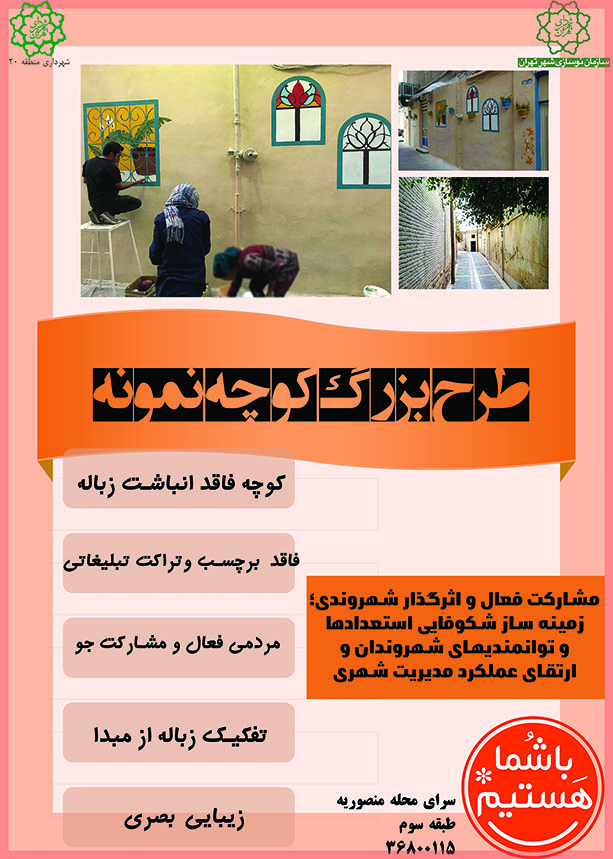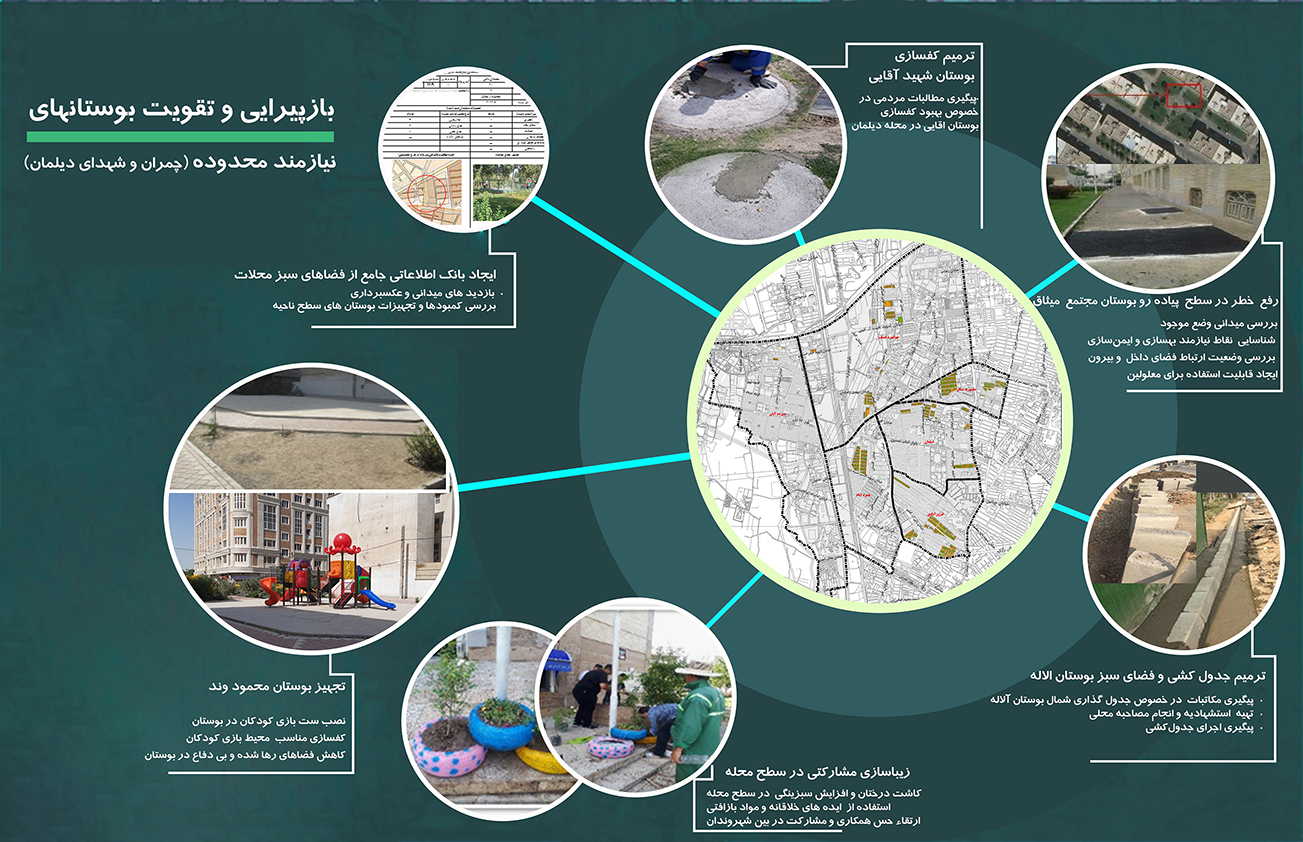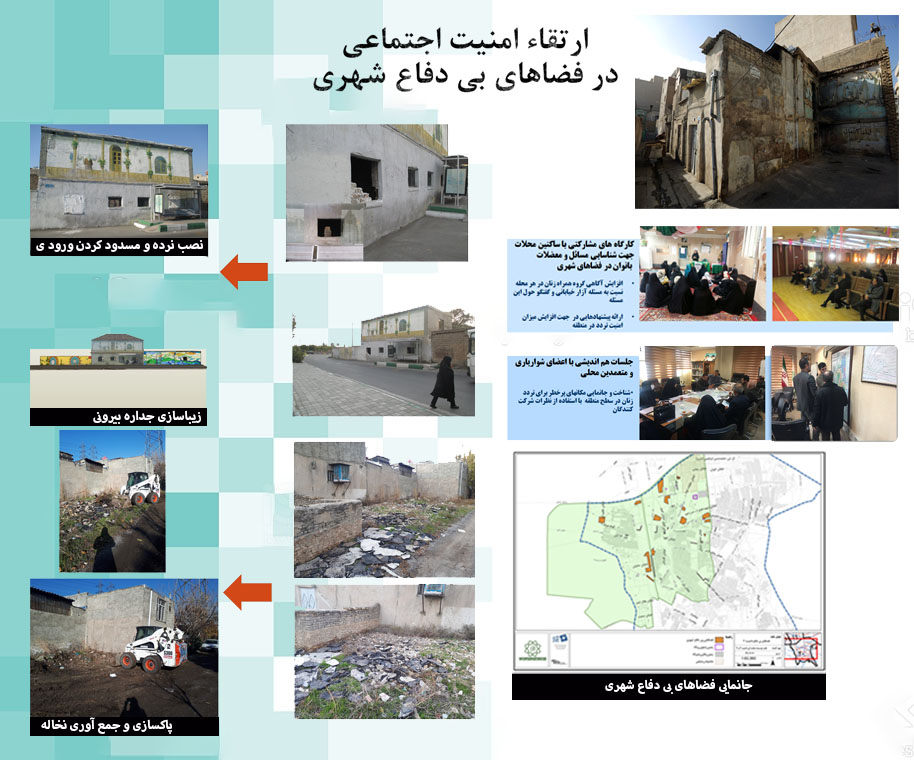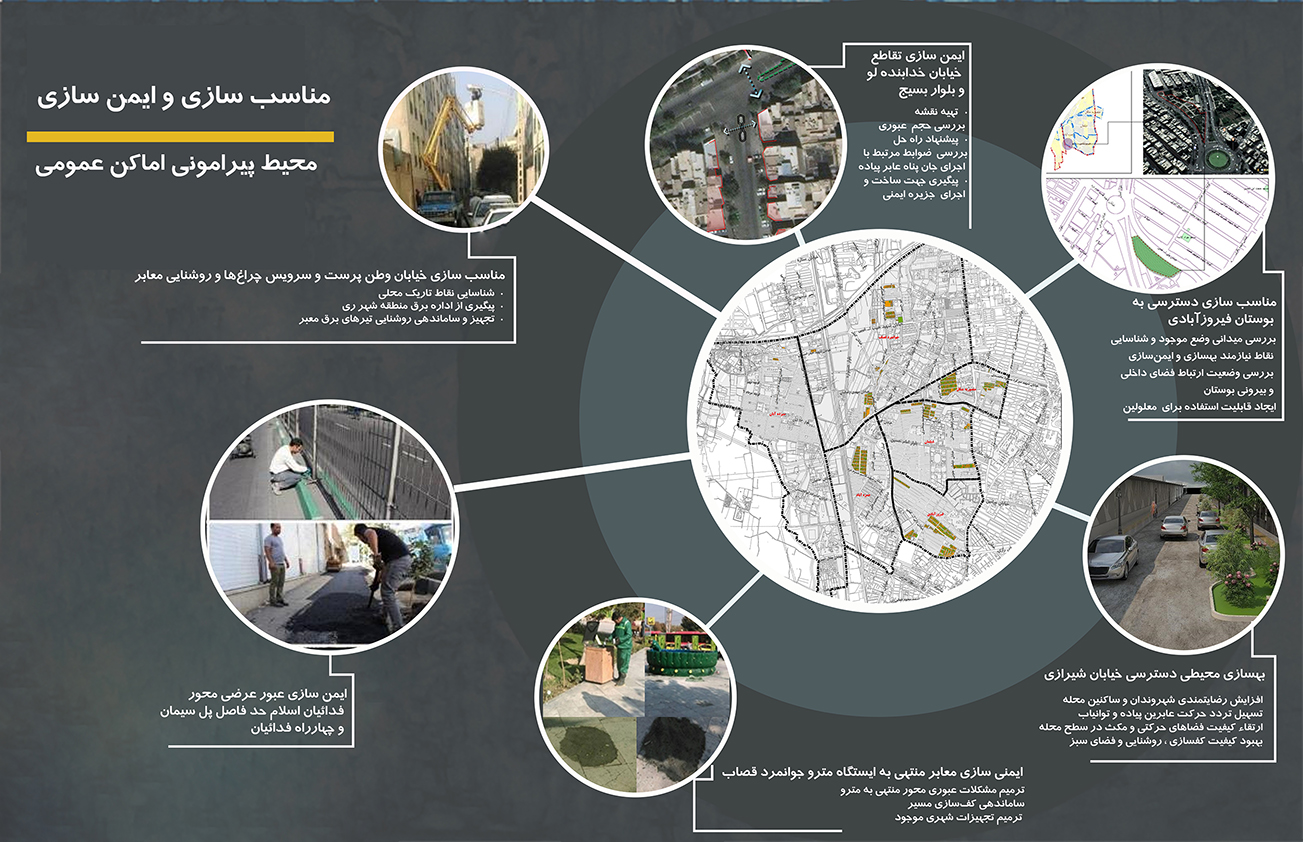Tehran District 20 Worn Tissue Neighborhood Development Office
Description of services performed:
Subject description
Dilapidated urban textures have been identified and approved by the Supreme Council of Urban Planning and Architecture of Iran based on the three indicators of erosion (instability, microgene and impermeability); In addition to the three indicators, these textures have physical and demographic manifestations of visibility, including high population density, lack of services and infrastructure. But in reality, these objective manifestations or the same indicators are the result of more fundamental factors that can be described as "economic poverty" and "reduction of social capital". In other words, physical poverty (burnout) is the result of deeper roots and their cause (reasons for their emergence and persistence) should also be considered as the goal of action and change.
Therefore, the solution to the problem of modernization is to define an intervention approach in worn-out contexts, which, while relying on physical solutions, places special emphasis on social and economic solutions with the participation of the local community. This approach, which is currently known as "facilitation" in the worn-out areas of Tehran, has been crystallized in the form of "renovation service offices" and has been implemented since 2007 in several stages.
From 2009 to 2011, local renovation offices, commonly known as facilitation offices, were able to increase the speed and quality of renovation in these structures by building public trust in worn-out structures. Between 2012 and 2013, while creating a stream of renovation and according to the main mission assigned to them (aggregation of fine-grained license plates), the offices were able to significantly increase the share of aggregate licenses in the total number of issued licenses. But since 1393 and due to the shortcomings in the neighborhoods, providing services and environmental improvement of neighborhoods with texture is known as one of the main missions of these offices.
Thus, the focus of the offices expanded from the renovation of residential properties to the improvement of quality of life in the form of improving public areas, providing services and improving urban infrastructure, and capacity building and utilizing the existing capacities of all institutions and trustees. They are called neighborhood development offices.
According to these conditions, the Tehran City Renovation Organization intends to rely on past experiences, the capacity created by the "Executive Regulations of the Law on Organizing and Supporting the Production and Supply of Housing (2009)" and "Instructions for the formation mechanism, service description" And the criteria for supervising the offices of renovation services of areas and neighborhoods of worn-out structures and informal settlements (2011), to call for the cooperation of qualified companies in this field to set up the said offices. Therefore, all companies with general conditions for setting up offices will be able to participate in the call.
Description of Neighborhood Development Offices Services
Outline services of neighborhood development offices will be:
• Performing applied micro-studies, documenting and preparing neighborhood books
• Track changes, refinement and approval of detailed design layers
• Preparing the executive plan of the passages
• Physical perception of passages
• Continuous local evaluation and collaborative social capacity building
• Environmental improvement projects
• Service projects
• Renovation and consolidation
• Preparation of facade design
• Pursuing registration and legal matters
• Attract resources
• Prepare a neighborhood development plan
General conditions for setting up neighborhood development offices
In order to implement the instructions "Mechanism of formation, description of services and criteria supervising the renovation service offices of areas and neighborhoods of worn-out structures and informal settlements", consulting engineers and other related companies with the following conditions are invited to cooperate in this field:
Having a history of activity in the field of renovation of worn-out structures and informal settlements
Having the structure of relevant human resources for full-time deployment in the local office, including: 1- project manager, 2- urban planner, 3- social facilitator








